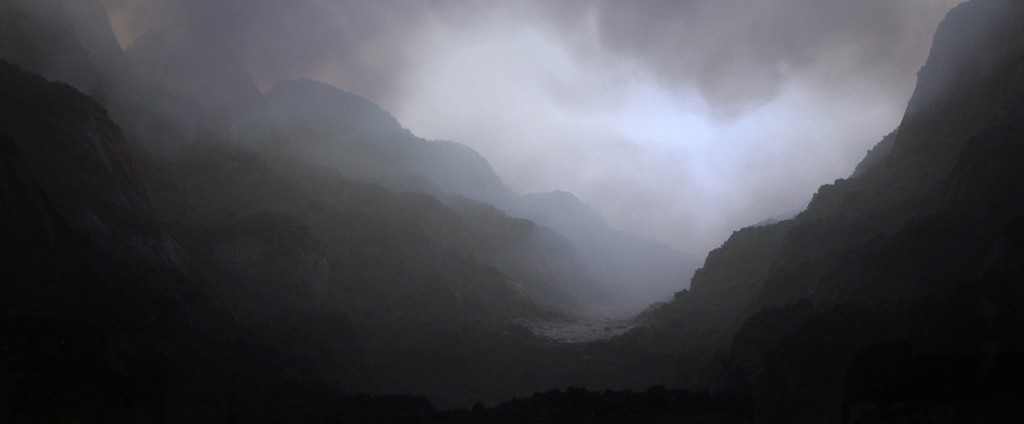
06 Mar Ye cloude of unknowyng
Among books of spiritual direction, that are short, and in English, my favourite is probably The Cloud of Unknowing — written in Chaucer’s day by some anonymous cleric, perhaps a Carthusian. He is not without personality, so that once we notice it we realize that a second treatise, The Book of Privy Counselling, must have been written by the same man. The full flavour of him requires familiarity with Middle English, and thus with that age: the colour and sparkle, tilt and lilt in each sentence. But there are some winning modernizations, such as that by the late Anglican vicar Clifton Wolters, quite free of bilge. Nothing in the little book is stuffy. It can even be satirical, as where it pricks the pretentions of showy religious fakes.
The book is Catholic as they come: entirely free of that grimness which arrived with the Reformation; that fixation or “enstaplement” as I call it — the sonorous preacher balanced on one foot, while the other searches for his gaping mouth; the bear with one foot stuck to the floor, attempting his dance routine.
One might read The Cloud simply to escape from the presumption and preachiness of modern religion; for a return to the mystical and exemplary, pregnant with silences. At the heart of the instruction for contemplative prayer is the hint from Augustine: that gentle reader, as gentle author, can know nothing of God from his own researches. For God is concealed, as it were, in a cloud of unknowing, penetrable only by Love; and as by analogy a beloved maiden is perceived not for her attributes but for herself, we might press ourselves upon The Lord without the usual want-list or catalogue of preconditions. Instead put God’s attributes right out of mind; forget about yourself, your past, and all nature. The cloud of unknowing lies above; let the cloud of forgetting close below.
The book is extremely encouraging, as it assures us that we are to do something that will last all our lives, and involve constant, often vexing difficulty.
Here, I must confess, it is a great pity the frescoes have so largely disappeared from the church walls, through these last painful centuries — for they, almost Chinese in their brush lines, but Italian in their peopling, were useful in lifting the Christian from the earthly plough to another realm. White walls with isolated pictures, statues or casts, make not the same presentation. They put us instead in a gallery or museum. Rather we need the draughtsman’s spirit of Lascaux.
But this is of course not what our “Cloud poet” would say; only what he would take for granted: the environment of prayer. That it must draw us away from febrile attachments.
“I truly believe that the Day of Judgement will be a lovely day.”
Now that is something he did say, and in a chapter full of paradox and surprises for the reader approaching from six-plus centuries away. He writes about a day on which, to our true merriment, we will find abject sinners conversing with the saints; and some who seemed so holy looking for a cave. This while we are still absorbing another counter-intuitive revelation, from a couple of sentences before.
Of course the “work” of contemplation, and of personal amendment through its effects, will be more onerous for the serious sinner than for the “quasi-innocent” woman or man, since the latter enjoys such a long head start.
“Yet it often happens that those who have sinned hideously and habitually come sooner to perfect contemplation than those who have not sinned at all.”
Well, I have touched only the surface of the book, and in only one place. But felix, felix, felix culpa.
By David Warren, lecturer in religion and literature, St Philip’s Seminary

